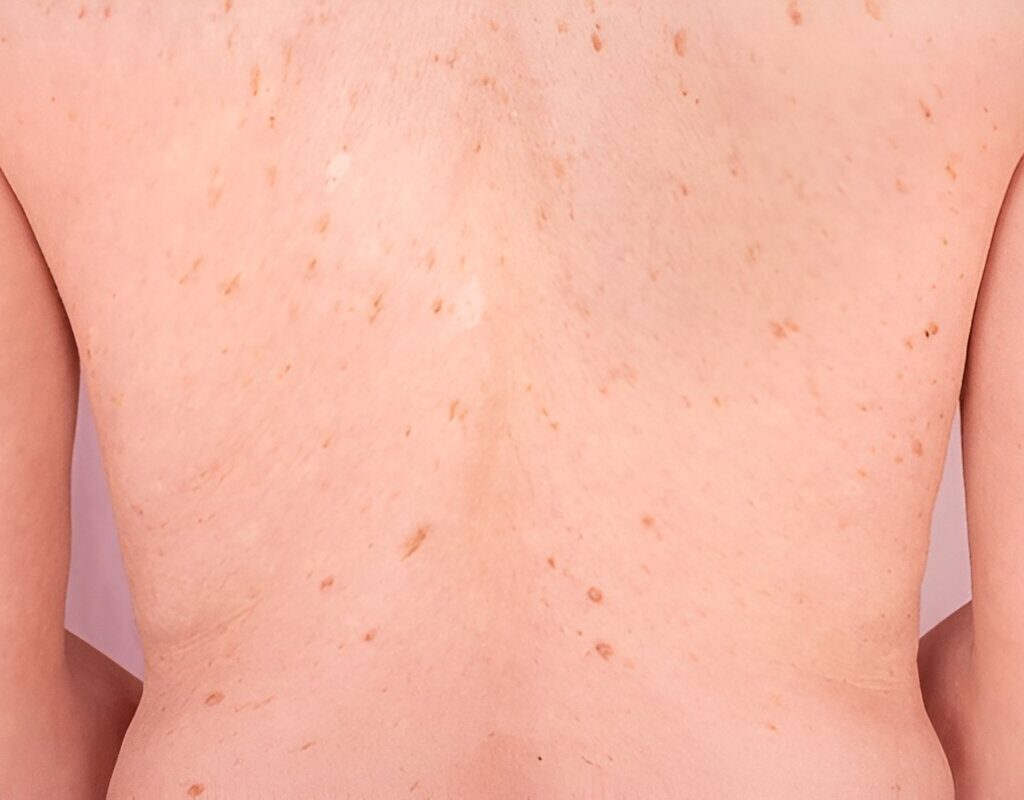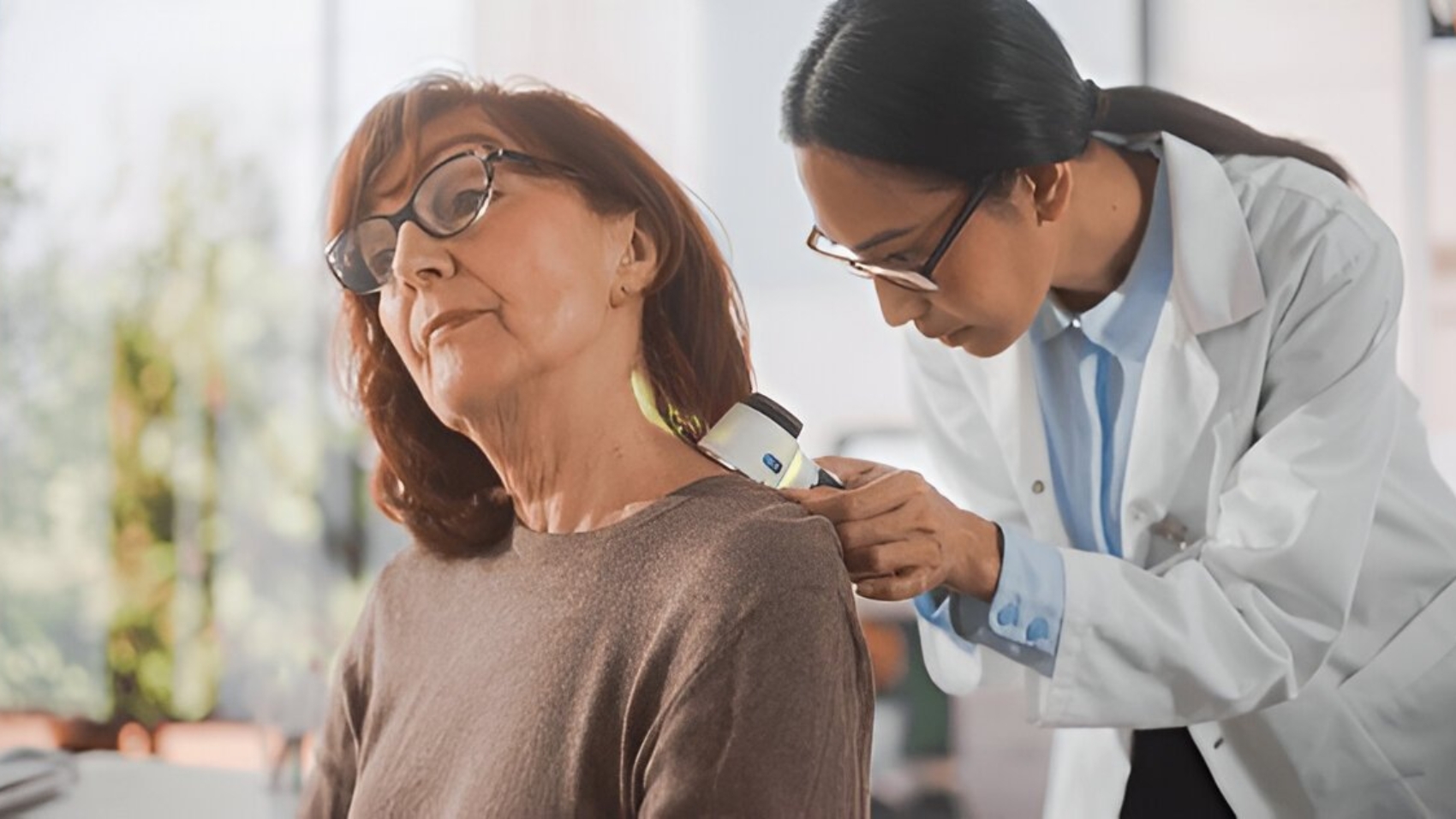Introduction
Skin cancer remains one of the most frequently diagnosed cancers in the United States so it is necessary to know about the Skin Cancer Specialist near you. The American Cancer Society projects nearly 100,000 new melanoma cases in 2024, along with thousands more non-melanoma cases affecting Americans.
The good news is that early detection through skin cancer screening can save lives. If you’re in Georgia and have been searching for a “skin cancer specialist near me” or wondering when it’s time to see a dermatologist, this guide will walk you through everything you need to know.

Why Skin Cancer Screening is Important
A skin cancer screening is a brief exam where a dermatologist checks your skin for unusual moles, spots, or growths. The process is fast, painless and in many cases, life saving.
The Skin Cancer Foundation reminds the reader that with its early detection, the melanoma that is the deadliest form of skin cancer has a high chance of survival of up to 99%.
Advantages behind routine screening:
- Early identification of cancers, when most cancers can be treated.
- Eliminates the small problems before they grow to big problems.
- Gives a sense of reassurance and a feeling of ease.
A skin cancer screening is a simple exam where a dermatologist inspects your skin for abnormal moles, spots, or growths. The procedure is quick, painless, and often lifesaving.
Who Should See a Skin Cancer Specialist?
Any skin cancer can occur to anyone though some individuals are more prone to it. You should strongly consider scheduling a screening with a skin cancer specialist near me in Georgia if you:
- Fair skinned, freckled, reddish or blond hair, or light-coloured eyes.
- General history of frequent sunburns or tan beds.
- Notice new, changing, or unusual moles or spots
- Have 50+ moles or multiple atypical moles
- A history of melanoma or skin cancer in the family
- Work outdoors or live in a sunny region like Georgia where UV exposure is high
If any of these apply, it’s time to see a dermatologist.
Signs You Shouldn’t Ignore
There are times when patients postpone an appointment with a doctor as they do not know what is serious. Here are clear warning signs:
- A mole which varies in magnitude, colour or form.
- A bleeding or not healed spot after 2-3 weeks.
- Scaly, painful or itchy lesions.
- Unbalanced moles that have irregular margins.
- Any lesion that appears dissimilar (“ugly duckling sign”) to your other moles (Mayo Clinic).
If you notice these symptoms, don’t delay—search for a skin cancer specialist near you in the USA and book an appointment immediately.
How Often Should You Get Screened?
Screening schedules are determined by both age and risk level:
- Low risk adults (symptom free): Every 1-2 years.
- Moderate risk (20-40 years with some risk factors): 1-3 years of interval.
- Individuals who are at high risk (family history, atypical moles, a melanoma previously): Every 6 to 12 months.
The American Academy of Dermatology advises adults to do monthly self-examinations, as well as keep professional screenings at least once a year.
What Happens During a Skin Cancer Screening?
If you choose to visit a dermatologist in Georgia, here’s what to expect:
1. Medical History Discussion
Your dermatologist will ask you about this:
- Family history of cancer
- Sun exposure habits
- Any moles or growths that alarm you.
2. Full-Body Exam
You will have a gown as the doctor who checks your skin up to the end takes a look at your skin. Areas checked include:
- Scalp
- Underarms
- Palms and soles
- Between toes
- Nail beds
A special magnifying tool, which is a dermatoscope, might be employed in order to examine it more closely.
3. Biopsy (If Needed)
If a spot appears suspicious, the dermatologist may conduct a biopsy, which involves taking a small tissue sample for laboratory testing. It is rapid and local anesthetic surgery. The findings take up to a few days.
4. Treatment Planning
In case cancer is diagnosed, your specialist might prescribe:
- Excision of lesion.
- Topical precancerous-spotted medications.
- Modern treatment like immunotherapy or radiation of advanced cases.
At CurePoint Cancer Georgia, our specialists have individual treatment plans for every patient.
How to Perform a Self-Exam at Home
While professional care is crucial, monthly self-exams can help you catch changes early.
Use the ABCDE rule for moles:
- Asymmetry: One half doesn’t match the other
- Border: Irregular or blurred edges
- Color: Multiple colors in one mole
- Diameter exceeds 6mm — roughly the size of a pencil eraser
- Evolving: Any change in size, shape, or symptoms
Check every part of your body—including areas you don’t see often like the back, scalp, and soles. If changes appear on your skin, schedule a visit with a Georgia dermatologist promptly.
Why Choose CurePoint Cancer Georgia?
When you search for a “skin cancer specialist near me” in Georgia, CurePoint Cancer is here to provide:
Extensive tests that involve the most recent equipment.
- Advanced oncologists and dermatologists.
- Individual treatment regimens.
- Local experience in Georgia residents.
By attending a local clinic you have the benefit of quicker access to treatment as well as continuity with your doctors and peace of mind.
Final Thoughts
The first line of defence of the body is also the skins which are prone to cancer. With Georgia’s warm, sunny climate, regular skin cancer screenings are essential. If you’ve been searching “skin cancer specialist near me in Georgia” or thinking it’s time to see a dermatologist, don’t delay.
At CurePoint Cancer Georgia, we are committed to delivering a high-level of screening, diagnosis and treatment which is caring.
Book your skin cancer appointment– your health and tranquility deserve it.
FAQs About Skin Cancer Screening
Q1: How long does a screening take?
Typically 15–30 minutes.
Q2: Does it hurt?
No, the screening is visual. A biopsy may cause mild discomfort but is quick and safe.
Q3: Can I prevent skin cancer?
You can lower your risk by applying sunscreen, skipping tanning beds, wearing protective clothing, and having routine screenings.Q4: Should children also get screened?
Children with many moles or a family history of skin cancer may benefit from screenings. Discuss with your dermatologist.

